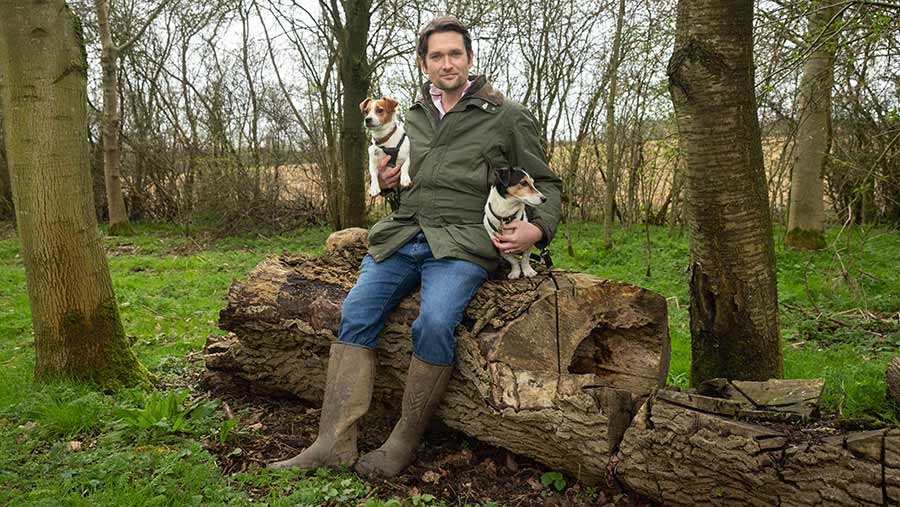Opinion: Labour’s vision for farming is ‘thin gruel’
 Joe Stanley © Tim Scrivener
Joe Stanley © Tim Scrivener When someone promises to “give me my future back”, my interest is naturally piqued.
Thus when lesser-spotted shadow Defra minister, Steve Reed, recently announced a tantalising new deal for farmers, I enthusiastically read on. This was going to be gamechanging.
I held a trembling hand to my head and tightened my bootlaces to ensure that neither hat nor socks were blown clean off by what was to follow.
See also: Opinion – farmers can’t pay for society’s ecological conscience
I’m not sure that Mr Reed’s level of ambition and mine quite match when it comes to British farming and what it has to offer the nation.
As it stands, Labour’s vision for a “decade of renewal” for the countryside in the run-up to this year’s election seems to consist of gruel so thin even Oliver Twist would decline a second serving.
First, a suggestion (as “commitment’” might be overselling it) that at least 50% of public sector procurement should hail from British farms.
While some may mull with surprise that this lowest of low-hanging fruit is not, in fact, already government policy, others might ruminate that the same suggestion has been made by the current government almost biannually since we took back all that control in 2016.
It’s the sort of thing ministers seem to announce when there’s an awkward pause in conversation.
Second, Mr Reed suggests negotiating a less execrable trade deal with the EU than that with which we were lumbered in 2020 by rumpled comedy prime minister Boris Johnson, thus lubricating the export market for agri-food goods.
A noble aim, yes, but also the bare minimum farmers might hope for from any semi-sentient government with an aversion to economic self-harm.
Third and fourth, Mr Reed has some vague ideas about farmers, fields and solar panels, and how a new government-backed energy firm might help limit high energy prices.
But while potentially useful for some, something slightly less 2030s might be more welcome.
Fifth, Mr Reed fancies booking out one of the Cobra rooms in Whitehall to chair a Flood Resilience Taskforce.
But in the absence of a costed, long-term, strategic national infrastructure plan for water management, it’s hard to see how such a reactive body could do much more than play Top Trumps with images of flooded farmland.
I appreciate that Mr Reed is trying to craft policies which don’t actually cost anything as the public finances Labour might inherit resemble a smouldering ruin. Yet this speaks to a higher problem.
Neither of the two main parties is exhibiting even an ounce of the required ambition to utilise Britain’s farmers to deliver on the national imperatives (and in some cases, legally binding requirements) for food security, climate and the environment.
What we need, alongside pragmatic policies on fairness in the supply chain, migrant labour and trade, is a long-term commitment to bold spending plans which will allow Britain’s countryside to become a powerhouse of the 21st century green economy.
After seven years of government mismanagement, uncertainty, equivocation and outright betrayal of agriculture, Labour should be shooting at an open goal with England’s farmers, but they are currently skying it into the stands.
To keep the rural vote competitive, their “new deal” for the countryside must raise its ambition. And don’t even get me started on the badgers.

